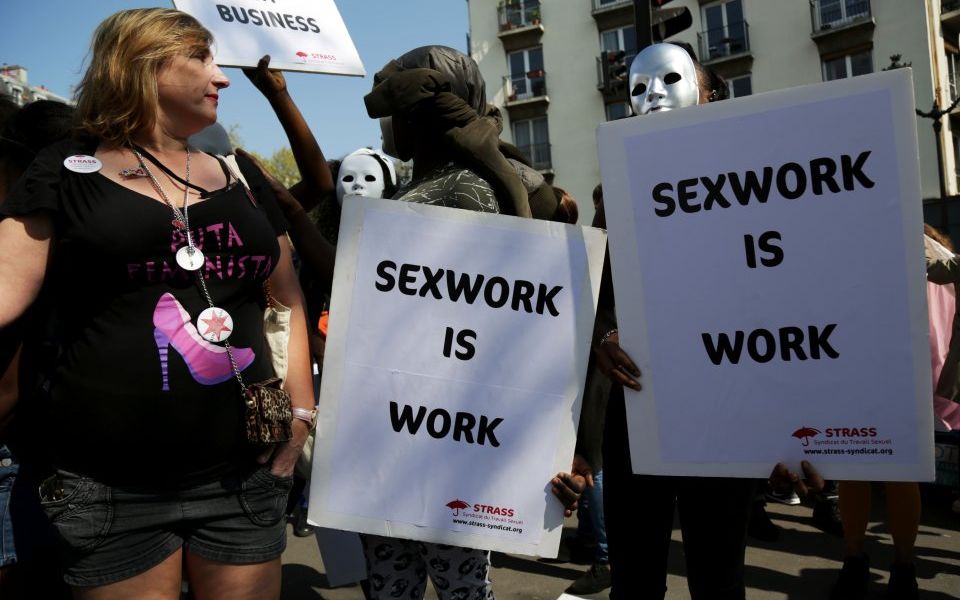Sex work bans are an affront to both safety and freedom

You might have missed it this week, in the midst of open warfare in the cabinet over EU customs arrangements and a nationwide celebration of the adored NHS, but MPs on Wednesday had a new target: sex workers.
Following a parliamentary report on prostitution, a cross-party group of MPs called for a ban on adult websites where individuals post adverts for sex work, under the guise of protecting victims of trafficking.
Tackling criminal gangs who profit from the sexual exploitation of vulnerable people (mainly women), whether trafficked or otherwise, is clearly vital.
Read more: We deserve a Prime Minister who isn’t blind to the case for cannabis
But a cursory glance at the report and its advocates reveals that the attempt to help one specific group of victims is being used as an excuse to restrict the sex industry as a whole – and that the measures have more to do with misguided views of morality than making anyone safer.
The report claims that “any notion that prostitution websites introduce ‘safety’ to the sex trade by making procurement visible is a dangerous and misleading fallacy.” But the women who actually advertise on such websites could not be clearer: the change, according to the English Collective of Prostitutes, would be “a disaster for sex workers”.
Far from making these women safer, they write that “many of us would be forced to work in other ways including on the streets where it is much more dangerous” or “be pushed into the hands of exploitative brothel bosses”.
The impetus for this change has come from the US, where President Trump signed a similar ban in April.
However, as opponents there pointed out, the evidence shows that sites enabling sex workers to advertise online make them safer: sex workers can screen clients, share information, and set boundaries. Rates of sexual violence and sexually transmitted diseases, including HIV, drop. So does the female homicide rate.
Anti-prostitution advocates are prepared to throw all that away, for the sake of a policy that won’t reduce trafficking. Gangs will still find ways to operate, while the women in the trade by choice will be forced underground and deprived of what little protection and agency they currently have.
If MPs are serious about helping trafficked victims, they need to deal with that specific issue and improve enforcement of what is already a crime. Indeed, one of the sites in question is actually working with the Home Office in “identifying and preventing online trafficking”.
But for the MPs pushing the change this week, it isn’t enough. And to get round the fact that sex workers seem utterly terrified of measures supposedly intended to protect them, their tactic was to ignore and infantilise them.
Labour’s Sarah Champion, who brought the debate, said “there nearly always appears to be some sort of control involved” when it comes to prostitution, while her colleague Gavin Shuker suggested that sex work was always a form of violence against women.
Both are in favour of criminalising the buying of sex in all circumstances, as is Tory MP Fiona Bruce and the DUP’s Jim Shannon.
This pious single-mindedness is typical of the recent trend for politicians to look at any difficult situation, and head straight for the ban button.
You can see the misguided rhetoric that the public needs protecting from itself with the ongoing war on drugs, and subsequent governments’ refusal to do anything vaguely resembling common sense.
Young people dying at festivals from taking unsafe substances? Don’t allow drugs testing facilitators to ensure that what they are taking is fit for consumption, but stick with the current tough policy that puts lives at risk. People keep coming up with new “designer drugs” to get around the rules? Put a blanket ban on drugs that don’t even exist yet.
And don’t for a second consider relaxing the laws on cannabis, regardless of the scientific and economic evidence – the lives ruined by over-criminalisation, gang warfare, and the dangerous variants sold on the street are a price worth paying for the false impression of maintaining public safety.
That ban-happy attitude extends to other areas where the government feels people aren’t acting in their own best interests. It might not always be an outright ban, but the desire for control is the same.
Obesity on the rise, so we restrict junk food adverts aimed at children and demand firms cut the sugar content in their foods. We don’t like how much people smoke and drink, so we get plain packaging on cigarettes and minimum pricing on alcohol.
Concerned about children seeing adult content online? Let’s crack down on legal internet pornography and restrict what adults can view, in their own homes, whether they have children or not.
In all these areas, the implication is that people are not capable of making their own decisions or safeguarding their children without government intervention. Like the sex workers at risk of being forced underground, the result is either negligible, at a cost of significant public expense and regulation of private businesses, or detrimental.
Societal problems, from health and safety to law and order, require complex, nuanced solutions. Basic bans may seem easy and popular, but all they really do is signal that politicians are more interested in looking like they’re doing something than in respecting individuals’ choices.
That’s actively harmful for sex workers, and downright insulting for the rest of us.
Read more: The nanny state is over-egging childhood obesity to weigh in on our lives